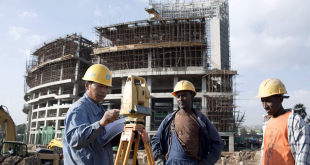By Gerald Mbanda

Are we about to live through another so called cold war, only this time between China and the Western powers, or is this kind of thinking itself stuck in the twentieth Century, when last cold war ended? Are we misunderstanding what is happening in 21st Century?
The United Nations Secretary-General AntónioGuterress suggests that unless the Western world, America especially, engages in meaningful dialogue with China, something altogether more serious than a cold war, what he calls a “tepid confrontation” loomslarge.
Chinese President Xi Jinping has consistently decried what he terms a “cold war mentality” and called for greater cooperation, most recently, at the World Economic Forum.
“We need to discard cold war mentality and seek peaceful coexistence and win-win outcomes” he said in his address, “protectionism and unilateralism can protect no one…Even worse, are the practices of hegemony and bullying, which run counter to the tide of history…” Xi said.
The Chinese president, and Secretary-General of the governing Communist Party of China (CPC), did not have to mention the Western alliance or America in particular, but the remarks were clearly addressed in that direction.
But what if a hegemonic outlook, “bullying”, or otherwise, is all the United States of America, especially, and the West generally, can imagine in their relationship with China? What if they are so deeply wedded to it in fact, that it is psychologically, at the moment at least, well-nigh impossible for them to abandon?
It is a thesis advanced by sinologist of many years, journalist, academic and author of When China Rules the World: The End of the Western World and the Birth of a New Global order, Martin Jacques.
The West, America in particular, was keen to maintain cordial relations with China, as it did in the 1972-2016, as long as China was not a competitor for American dominance in the world. Jacques argues that cooperation with China was predicated on two unspoken conditions: firstly, that China was never going to seriously challenge America’s economic might, and secondly, that as China developed, it would become more and more Westernised.
When by 2016, it became clear that neither of these two scenarios were happening, or going to happen, China then became perceived as a threat to be contained, and the onslaught against the country, has been steady and unrelenting.
This misreading of China represents a fundamental flaw in Western thinking, when it comes to other cultures. There is no escaping a strong suggestion of inherent assumption of superiority, which tends to blind Westerners to the worth of other peoples.
In spite of a civilisation stretching back thousands of years, for the Americans, Chinese development could mean only becoming more like the West, and implicit in that, forever being under Western tutelage.To which one might ask, has the West not been paying any attention at all to what has been happening in China?
This kind of approach may have worked well, in the relationship between the Global South, and the Western world, but it stops at China’s frontiers.
The country dubbed the years 1850-1950, “the Century of humiliation.” This should give us clear insight into Chinese thinking. It is not a Century they intend to have repeated. A new kind of relationship will have to emerge, and until it does, the world will have to live the consequences of a tense, fractious relationship between two of its largest economies.
China has more than demonstrated that it desires a change in the relationship. We saw this at the beginning of the SARS-Cov-2 pandemic. The messaging from China was humanity together against the virus. It is fair to say that the goodwillwas spurned, upon which China decided to go itsown way. Two years into the pandemic, and China kept the door to cooperation open.
But, although less boorish, the administration of President Biden of the United States of America, has not done noticeably better than his brash predecessor, in attempting to heal relations with China.
This reluctance to repair the relationship, Jacques suggests, is deeply rooted in America’s view of itself. America, he says, has never imagined not being the dominant force in the world, and it is psychologically difficult to contemplate the idea.
Contemplate it though they are going to have to. Butit will not come overnight, in fact Jacques suggests it will take decades. In a way reality will push America into accepting a change in its view of itself.
By emphasizing dialogue, China may help America find a way out of what Jacques argues will be a traumatic change. And Western Europe will play an important role, with the Europeans’ greater readiness to cooperate with China.
The rest of the world too can ill afford to be mere spectators. At stake, is nothing less than a realignment of what has been accepted as the “world order.”
The clear lesson from China, is that if you would change how the world regards and treats you, first change yourself.
Gerald Mbanda is a Researcher and publisher on China and Africa
For comments or opinion write to us on info@africachinareview.com
Follow us also on twitter @africachinarev
 Africa -China Review Africa -China Cooperation and Transformation
Africa -China Review Africa -China Cooperation and Transformation
